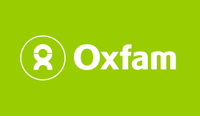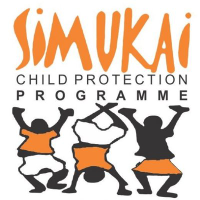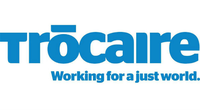United Kingdom Aid Match (UKAM) Mid-Term Evaluation
Job Description
United Kingdom Aid Match (UKAM)
Mid-Term Evaluation
TERMS OF REFERENCE - SEPTEMBER 2024
Established in 1973, Trócaire is the official overseas development agency of the Catholic Church in Ireland. We work with local and church organizations in 20 countries across Africa, Asia, Latin America, and the Middle East to support communities and bring about lasting change. Our vision is a just and peaceful world where people's dignity, rights, and basic needs are met, resources are shared equitably, and those in power act for the common good.
Trócaire Zimbabwe is implementing a project “Improved food security and coping strategies for vulnerable women and men affected by drought and long-term impacts of COVID-19 in Southern Zimbabwe”. The project is supported by the United Kingdom Foreign, Commonwealth, and Development Office (FCDO) Aid Match (UKAM) fund with Trócaire Northern Ireland providing the balance of funds. The UKAM project spans the period 1 April 2023 to 31 March 2026.
Through this programme, Trócaire and three local implementing partners (Caritas Masvingo, Caritas Bulawayo, and Musasa Project) are using an integrated approach to address the chronic food insecurity and sexual gender-based violence (SGBV) in the targeted project locations which deteriorated due to the impact of COVID-19. FCDO is interested in knowing if this intervention is contributing to reducing gender inequality. The evaluation should measure progress made against commitments and be able to identify any negative unintended consequences.
1.1 Expected Project Outputs
i. Output 1: 5,000 people (4,000 women, 1,000 men; inclusive of 400 people with disability (PWDs) adopt climate-resilient production practices for increased food production and improved diets.
ii. Output 2: 8,000 women and men, inclusive of 640 PWDs, have improved access to productive and domestic water, and improved awareness of hygiene practices for disease prevention.
iii. Output 3: 1,700 women and girls, inclusive of 136 PWDs, have improved coping capacities.
2. GEOGRAPHIC COVERAGE, TARGET GROUPS AND PROJECT ACTIVITIES
The project is being implemented in three districts, namely Zaka District in Masvingo Province, and Mangwe and Umzingwane Districts in Matabeleland South Province. Three implementing partners are involved: Musasa Project, Caritas Masvingo, and Caritas Bulawayo.
The initiative intends to directly reach 8,000 individuals (80% female, 20% male), including 8% (640) persons with disabilities (PWDs). Project activities being undertaken include training in agroecological practices, micro-livestock management, seed bank construction, establishment of community gardens, establishment of boreholes, and strengthening safe spaces for women and girls. This mid-term evaluation should therefore include all target areas and population groups mentioned.
3. PURPOSE OF THE MID-TERM EVALUATION
The primary purpose of the mid-term evaluation (MTE) is to assess the project progress against the Evaluation Criteria for Development Assistance (ECD); encompassing relevance, coherence, effectiveness, efficiency, impact, and sustainability. Cross-cutting issues, and challenges faced during implementation, and the lessons learned through project's execution, will also be considered.
Key to this evaluation is Trócaire’s Value for Money (VFM) toolkit. Trócaire’s VFM toolkit is expected to guide a participatory VFM assessment enabling beneficiaries and stakeholders to provide feedback on which project components they consider to be effective, equitable, efficient, and economic. In addition, VFM analysis will examine the allocation of resources, to identify the project activities with the greatest impact. This will help inform recommendations about adaptations to the project activities.
Specifically, the mid-term evaluation objectives are to:
i. Assess UKAM project achievements against relevance, equitability, coherence, effectiveness, efficiency (VFM), impact, and sustainability criteria.
ii. Review and address key areas highlighted in annual reports, particularly on evaluating the Theory of Change (ToC) and suggesting necessary adjustments to ensure that the project results are met.
Based on these objectives, the mid-term evaluation will draw lessons from project implementation and provide recommendations to enhance project delivery. These recommendations will guide future actions to ensure that the project's impact and sustainability are enhanced.
4. KEY QUESTIONS FOR THE MID-TERM EVALUATION
The MTE will address two sets of questions – (i) Learning questions, and (ii) Evaluation Criteria questions (see Table 1 and 2). Additional questions may be added, as agreed by the Trócaire team, to address specific issues.
Duties and Responsibilities
The Trócaire team will collaborate with the consultant to determine the best approach and methods for the MTE. The goal is to effectively engage participants, stakeholders, and other data sources for data collection.
The consultant is expected to develop and submit a structured workplan for the MTE. All activities should be scheduled between the 25th of September and the 21st of October 2024.
5.1 DOCUMENTS TO BE PROVIDED BY TRÓCAIRE FOR REVIEW
The following documents, containing further information on the project, will be availed to the consultant:
i. UKAM Baseline Survey Report
ii. Quarterly Project reports
iii. Annual Report and Actions to be taken
iv. Logical Framework, Logic Model, and Beneficiary Data Management Sheet
v. Project Management Plan
vi. Project Implementation and learning plans
6. BUDGET DETAILS
Submission of a comprehensive budget plan is required from the consultant, which should include supporting documentation such as the TIN (Taxpayer Identification Number) certificate and Tax Clearance Certificate. Compliance with the Zimbabwe Revenue Authority (ZIMRA) regulations and possession of a valid Tax Clearance Certificate is expected from the consultant. If the consultant is unable to provide the required tax clearance documents, Trócaire is mandated to withhold 30% tax. The budget plan should include expenses for travel, per diems, and other relevant costs, along with the proposed methodology in the technical proposal.
The payment schedule for consultants will be as follows: a 30% down payment of the total consultancy cost upon commencement of the assignment, with the remaining 70% to be paid upon submission of the final assignment and all related deliverables, to the satisfaction of Trócaire. Payments will be processed upon receipt of an invoice.
The consultant's responsibilities will encompass overseeing the entire evaluation process, including planning, pilot testing of tools, collecting field data, analyzing data, and preparing reports. Trócaire and its implementing partners will also participate in the data collection process as enumerators. In addition, they will provide support to the consultant by facilitating coordination and arranging stakeholder meetings during the data collection phase.
7. ETHICAL CONSIDERATIONS
Participation in the study will be conditional on obtaining informed consent from eligible individuals. The anonymity of participants must be safeguarded, and every effort will be made to maintain the highest level of confidentiality regarding the information gathered. Furthermore, no personally identifiable information will be collected or associated with the results of the UKAM mid-term evaluation, ensuring the privacy of participants is fully protected
8. SAFEGUARDING
In accordance with Trócaire Safeguarding Policy, Trócaire is committed to actively safeguarding communities from harm. Trócaire takes seriously the commitment to promote safe practices and protect communities from harm, abuse, neglect, and any form of exploitation as they meet our supported interventions. In addition, we will take positive action to prevent abusers from becoming involved with us in any way and take stringent measures against any Trócaire Staff and/or Associate who abuses communities. The consultant(s) and all related staff must sign the Safeguarding Policy as part of the contract and commit to adhering to it during the MTE. Trócaire is a member of the Inter-Agency Misconduct Disclosure Scheme, and all consultants will be subject to the assessment of any previous safeguarding misconducts as part of the contract of engagement.
9. FORMAT FOR SUBMITTING THE PROPOSAL
Interested qualified consultants should provide a proposal covering the following aspects:
1. Expression of Interest (EOI).
2. Detailed technical proposal clearly demonstrating a thorough understanding of the terms of reference (TORs) and including the following:
A. Proven track record in managing, coordinating, and administering comparable studies, along with two samples of recent work that include references for verification purposes.
B. Demonstrated previous experience in designing, managing, coordinating and administering studies of a similar nature,
C. Proposed detailed methodology for the evaluation.
D. Ethics and safeguarding approach, including any identified risks and associated mitigation strategies.
E. A proposed timeframe detailing activity and a schedule/work plan.
F. Team composition, outline of major activities of each member involved and number of working days allocated to tasks
G. Previous experience similar in nature including type of study, sector, organization.
3. A financial proposal with a detailed breakdown of costs for the mid-term evaluation:
A. Itemized consultancy fees/costs.
B. Itemized field data collection expenses (accommodation, meals and incidentals will be covered by the consultant).
C. Itemized administrative expenses (printing costs will be covered by the consultant)
D. Validity period of quotations.
E. Copy of registration certificate and other relevant documents.
4. Curriculum Vitae(s) of key team members, outlining relevant experience.
5. Names and contact information of three references who can be contacted regarding relevant experience and quality of work.
6. A copy of previous reports of similar work undertaken on a) baseline study; OR b) mid-term evaluation OR end line study.
7. A profile of the consulting firm (if applicable).
10. KEY DELIVERABLESKey deliverables and services include:
i. Inception Report (10 pages max), including:
• An updated timeline for the exercise.
• Detailed methodology to be used in the evaluation, including sampling method, including sampling method and sample size.
• Ethical considerations.
• Brief justification of the methods and techniques used (including relevant underlying values and assumptions/theories) with a justification of the selections made (e.g., of persons interviewed).
ii. Mid-term Evaluation data collection tools.
iii. Completed consent forms from participants interviewed or photographed.
iv. Final MTE report should not be more than 30 pages and a summary report of 5 pages).
All deliverables should be submitted to Trócaire Zimbabwe by the 31st of October 2024.
Qualifications and Experience
The consultant/consulting firm must have a relevant mix of skills, competencies and experience needed for the exercise, and must have undertaken similar work in Zimbabwe in the last five years.
▪ Postgraduate degree in social sciences or equivalent.
▪ Proven experience in carrying out development research, including evaluations.
▪ Minimum of five years of experience in designing, managing, coordinating and delivering MTEs/end-line studies, preferably for international non-governmental organizations or bi/multilateral agencies.
▪ Demonstrated experience in quantitative and qualitative data collection and analysis methods.
▪ Proficiency in qualitative data analysis packages.
▪ Experience on cross-cutting issues such as disability, gender, and inclusion, as well as awareness on child protection and child rights issues.
▪ Demonstrated capacity to produce high-quality written outputs in English within scheduled timeframes.
The following experience and demonstrated capacity are highly desirable:
▪ Experience in using/evaluating the Gender Equality and Social Inclusion (GESI) approaches.
▪ Knowledge and experience in community resilience building, SGBV, gender equality and social inclusion, agro-ecology, and advocacy are desirable requisites.
▪ Capacity and experience to work with communities in local languages (isiNdebele and chiShona).
▪ Demonstrated capacity to draft and deliver high quality written work (i.e., reports and associated documents) in the English language.
▪ Ability to meet deadlines set for the tasks and deliverables contracted.
12. PRODUCT RIGHTS AND OWNERSHIP
The ownership of the mid-term evaluation reports, and associated products will belong to Trócaire and its partners. Any documents, publications, photographs, audio recording and other media related to this review will only be shared through their permission.
How to Apply
Please find attached TOR’s. Interested individuals or consulting firms should submit the expressions of interest for the UKAM mid-term evaluation to [email protected] by 16 September 2024
CLICK THE BUTTON BELOW TO VIEW THE FULL ADVERT
Similar Listings

Baseline Assessment for the project, “Integrated Emergency Response for El Niño Drought Affected Communities in Zimbabwe,
Oxfam — Harare

CALL FOR EXPRESSION OF INTEREST FOR CONSULTANCY SERVICES FOR THE DESIGN AND IMPLEMENTATION OF A CAPACITY DEVELOPMENT PROGRAM FOR SIMUKAI CHILD PROTECTION PROGRAMME
Simukai Child Protection Program — Harare

Location: Harare
Company: Trócaire
Expiry Date: 2024-09-16 00:00:00
